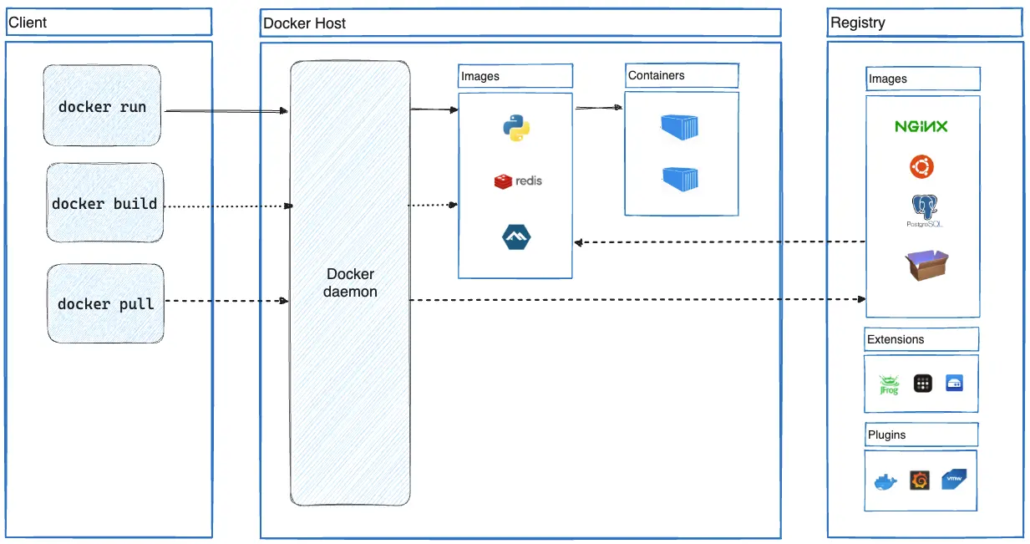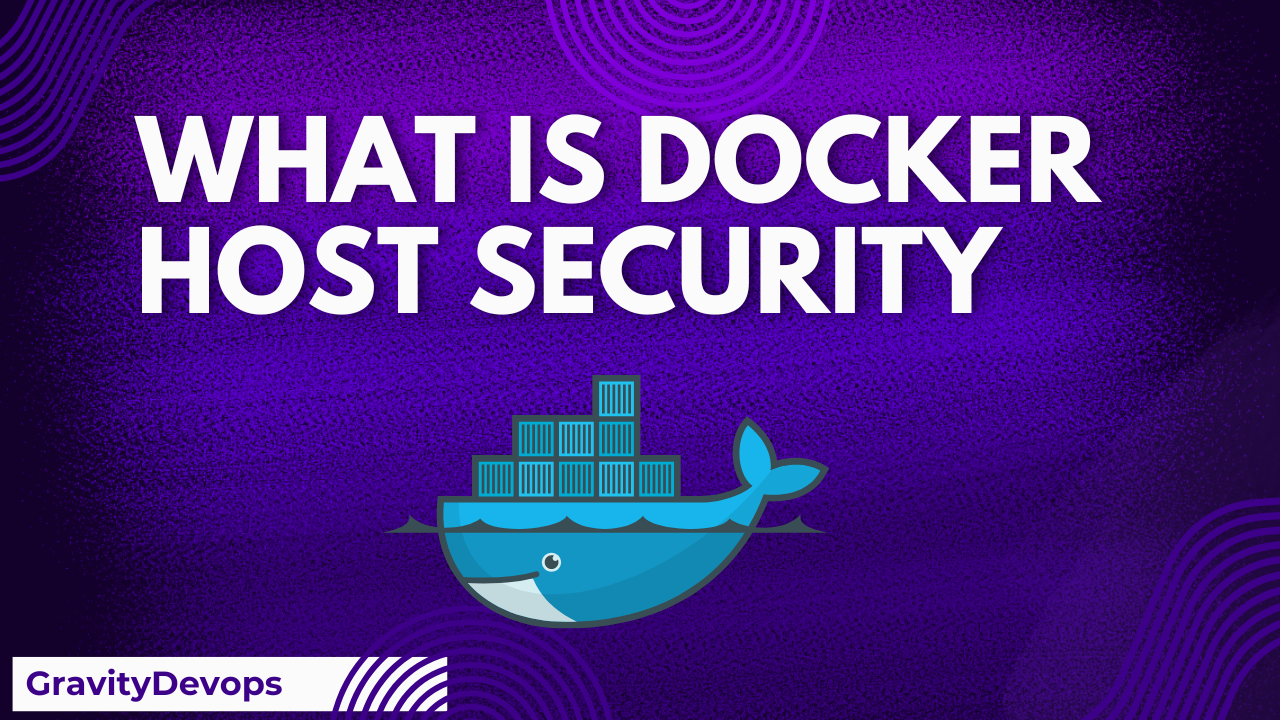Introduction
As containerization continues to revolutionize software development and deployment, Docker has emerged as one of the most popular tools for building, shipping, and running applications inside lightweight containers. However, with this widespread adoption comes the critical need to secure not just the containers but also the underlying system—the Docker host. In this article, we’ll explore Docker host security, its importance, and how to enhance it by enabling Auditd for monitoring Docker-related activities.

What is Docker Host Security?
Docker host security refers to the practices and measures taken to safeguard the system (physical or virtual) that runs the Docker daemon and its containers. The Docker host is the foundational layer where the Docker engine operates, managing container images, networks, volumes, and runtime environments. Since containers share the host’s kernel and resources, a compromised host can lead to vulnerabilities across all running containers, making host security a critical aspect of a containerized environment.
Key components of Docker host security include:
Kernel Security: Ensuring the host’s Linux kernel (or equivalent OS kernel) is hardened against exploits, as containers rely on it for isolation.Docker Daemon Protection:Securing the Docker daemon, which runs with root privileges and controls all container operations.Resource Isolation:Limiting container access to host resources (e.g., CPU, memory, filesystem) to prevent privilege escalation or denial-of-service attacks.Network Security:Configuring firewalls and network policies to restrict unauthorized access to the host and its containers.Audit and Monitoring:Tracking system and Docker-specific activities to detect suspicious behavior or misconfigurations.
A breach in Docker host security could allow attackers to escape container boundaries, manipulate the Docker daemon, or compromise the entire system. Therefore, securing the host is as important as securing the containers themselves.
Why Use Auditd with Docker?
Auditd (Audit Daemon) is a powerful Linux auditing tool that logs system events, such as file access, system calls, and user actions. Enabling Auditd for Docker provides visibility into activities involving the Docker daemon, containers, and the host system. This is invaluable for:
Security Monitoring:Detecting unauthorized access or changes to Docker configurations.Compliance:Meeting regulatory requirements (e.g., PCI DSS, HIPAA) by maintaining detailed audit trails.Troubleshooting:Identifying the root cause of issues by analyzing system and container behavior.
By default, Docker does not log low-level system interactions, so integrating Auditd helps bridge this gap, offering a deeper layer of oversight.
How to Enable Auditd for Docker
Below are step-by-step instructions to enable and configure Auditd to monitor Docker on a Linux-based Docker host. This guide assumes you’re using a system with systemd (e.g., Ubuntu, CentOS, or RHEL).
Step 1: Install Auditd
First, ensure Auditd is installed on your system.
- On Ubuntu/Debian:
sudo apt update
sudo apt install auditd audispd-plugins -y- On CentOS/RHEL:
sudo yum install audit audit-libs -yStart and enable the Auditd service:
sudo systemctl start auditd
sudo systemctl enable auditdVerify it’s running:
sudo systemctl status auditdStep 2: Locate Docker-Related Paths
Docker stores its configuration, runtime data, and binaries in specific directories. Common paths to monitor include:
/var/lib/docker: Docker’s default data directory (images, containers, volumes)./etc/docker: Configuration files (e.g.,daemon.json)./usr/bin/docker: Docker binary./var/run/docker.sock: Docker socket used for daemon communication.
You can confirm these locations by checking your Docker setup:
docker info --format '{{.DockerRootDir}}'Step 3: Configure Audit Rules for Docker
Auditd uses rules to define what to monitor. Add Docker-specific rules to the Auditd configuration file (/etc/audit/audit.rules or /etc/audit/rules.d/audit.rules, depending on your distro).
Open the file in a text editor (e.g., sudo nano /etc/audit/rules.d/audit.rules) and append the following rules:
# Monitor Docker binary execution
-a always,exit -F path=/usr/bin/docker -F perm=x -k docker
# Monitor changes to Docker configuration files
-w /etc/docker -p wa -k docker_config
# Monitor Docker data directory
-w /var/lib/docker -p wa -k docker_data
# Monitor Docker socket activity
-w /var/run/docker.sock -p rwxa -k docker_socketExplanation of options:
-a always,exit: Log events on system call exit.-F path=...: Filter by file path.-F perm=x: Monitor execution (x) of the Docker binary.-w: Watch a file or directory.-p wa: Monitor write (w) and attribute (a) changes; for the socket,rwxaincludes read, write, execute, and attribute changes.-k: Assign a key (e.g.,docker) for easy log filtering.
Save the file and restart Auditd to apply the rules:
sudo systemctl restart auditdAlternatively, reload the rules without restarting:
sudo augenrules --loadStep 4: Test the Configuration
Run some Docker commands to generate audit logs:
docker run --rm alpine echo "Testing Auditd"
docker psCheck the Auditd logs (/var/log/audit/audit.log) for entries:
sudo cat /var/log/audit/audit.log | grep dockerYou should see logs with details like timestamps, system calls (e.g., execve for binary execution), and file access events tagged with the docker key.
Step 5: Analyze Logs with Ausearch
Use the ausearch tool to filter Docker-specific events:
sudo ausearch -k dockerFor real-time monitoring, tail the log file:
sudo tail -f /var/log/audit/audit.log | grep dockerStep 6: Harden Auditd (Optional)
To ensure Auditd itself is secure:
- Set the log file to immutable mode:
sudo chattr +i /etc/audit/rules.d/audit.rules- Adjust log rotation and retention in
/etc/audit/auditd.confto prevent disk space issues.
Best Practices for Docker Host Security with Auditd
- Combine with SELinux/AppArmor: Use mandatory access control (MAC) systems alongside Auditd for defense-in-depth.
- Limit Docker Socket Access: Restrict
/var/run/docker.sockpermissions to trusted users. - Regular Updates: Keep the host OS, Docker, and Auditd packages updated.
- Centralized Logging: Forward Auditd logs to a SIEM (e.g., ELK Stack) for centralized analysis.
- Test Rules: Periodically test and refine Auditd rules to avoid excessive noise.
Conclusion
Docker host security is a foundational pillar of a secure containerized environment. By enabling Auditd to monitor Docker activities, you gain critical visibility into system events, enhancing your ability to detect and respond to potential threats. The steps outlined above provide a practical starting point for integrating Auditd with Docker, but security is an ongoing process. Regularly review your setup, adapt to new threats, and combine Auditd with other security tools to keep your Docker host—and containers—safe.


